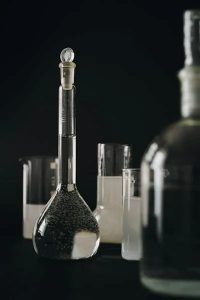P-Hydroxybenzenesulfonic acid is also called phenolsulfonic acid . Its molecular formula is C6H6O4S and its molecular weight is 174.17. This substance is mainly used for resin curing and is the most important additive in the acidic tin plating process. It also has the function of acidic resin foaming and is used in organic intermediate.

Basic Information #
Commonly known as: curing agent
Chinese chemical name: p-hydroxybenzenesulfonic acid English name:phenol-4-sulfonic acid
Chinese alias: phenol sulfonic acid; phenol-4-sulfonic acid; phenol-4-sulfonic acid; curing agent; 4-hydroxybenzenesulfonic acid; p-phenol sulfonic acid
English aliases: 4-hydroxybenzenesulphonic acid; phenol-p-sulphonic acid; p-Phenolsulfonic acid hydrate; Phenolsulfonic acid; 4-hydroxy-benzenesulfonicaci; 4-Hydroxyphenylsulfonic acid; , p-hydroxy-; Benzenesulfonicacid,4-hydroxy-; Phenol-4-sulfonicacidsolutio; phenol sulphonate; 4-hydroxybenzenesulfonic acid;
CAS number:98-67-9
Molecular formula:C12H10N2O4S
Molecular weight:278.2838
SMILES:Oc1ccc(cc1)S(=O)(=O)O
EINECS:202-691-6
Storage method #
Store in a cool, ventilated warehouse. Keep away from fire and heat sources. They should be stored separately from oxidants and alkalis, and avoid mixed storage. Suitable materials should be available in the storage area to contain spills.
The main purpose #
It is used for resin curing and is the most important additive in the acidic tin plating process. It also has the function of acidic resin foaming and is used as an organic intermediate.
Security Information #
risk terminology #
R34:Causes burns. Causes burns.
security terminology #
S26: In case of contact with eyes, rinse immediately with plenty of water and seek medical advice.
S36/37/39: Wear suitable protective clothing, gloves and eye/face protection. Wear suitable protective clothing, gloves and eye/face protection.
S45: In case of accident or if you feel unwell, seek medical advice immediately (show the label whenever possible.) In case of accident or if you feel unwell, seek medical advice immediately (show the label whenever possible.)
ecological data #
This substance is harmful to the environment and can cause pollution to water bodies and the atmosphere. Organic acids can easily form acid rain during atmospheric chemistry and atmospheric physical changes. Therefore, when the pH value drops below 5, it will cause serious harm to animals and plants, and the reproduction and development of fish will be seriously affected. Metals in the soil and water sediments in the watershed can be dissolved into the water and poison the fish. Acidification of water bodies will also lead to changes in the composition and structure of aquatic organisms. Acid-resistant algae and fungi will increase, while root plants, bacteria and vertebrates will decrease, and the decomposition rate of organic matter will decrease. Acidification will seriously lead to the reduction or death of fish in lakes and rivers.

 April 1, 2024
April 1, 2024 










